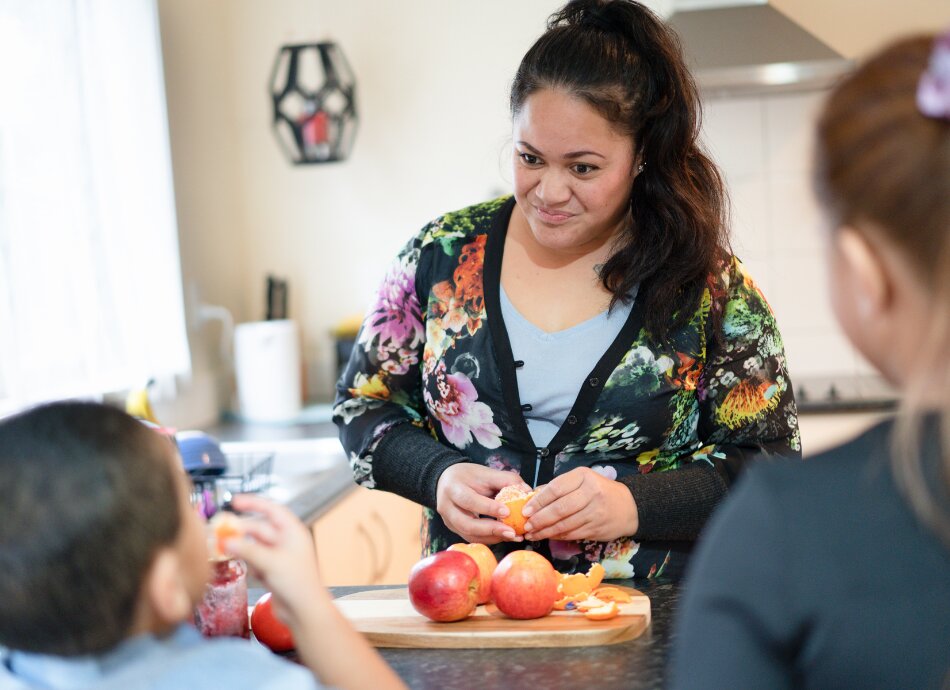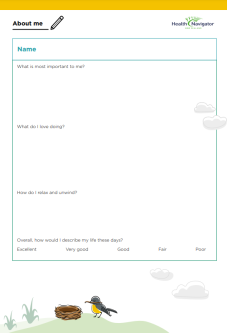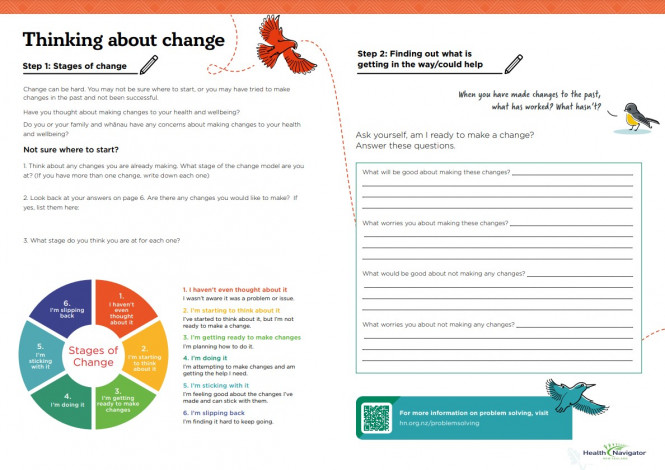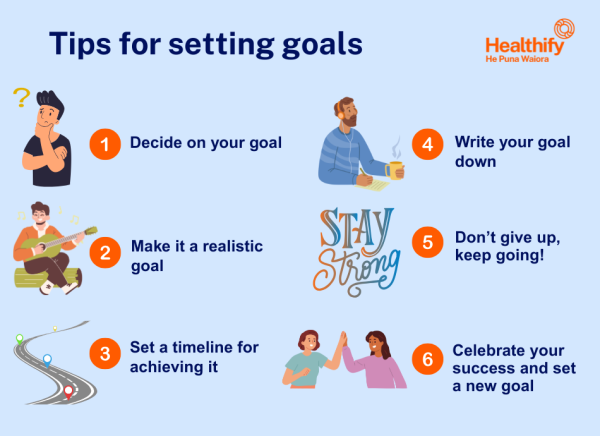You can now add Healthify as a preferred source on Google. Click here to see us when you search Google.
Goal setting and making changes
Key points about making changes and setting goals
- Ever tried to break an unhealthy habit such as smoking? Or attempted to start a new and healthy routine, such as a morning walk or jog?
- Making changes can be hard and deciding how to get started can be even harder. Is there an area of your life that you'd like to improve?
- Many of us try to change our old habits or behaviours – some make some progress while others end up in the same spot they started in.
- On this page we give you a few ideas that can help you to make long-lasting change.

When you're thinking about making a change, there are questions you can ask yourself to help identify whether making a change is the right thing to do, what that change might be and if you're ready to start.
Some questions to ask yourself can be:
- Why do I want to make this change? Is it to improve health/wellbeing/manage stress/have good habits, be around longer for your family etc.
- Who am I making these changes for?
- Who can support me with the changes I want to make? Having a good support system around you can help make it easier for you to form new habits.
- What might be some challenges that I may face and how can I can overcome these barriers?
- What's the smallest step I can take? When, date, time, action?
Finding out what’s important to you is the first step and helps you keep motivated – it's so much easier if the change you're making is meaningful.
You can start by writing down some things about yourself and what you enjoy. Here's a worksheet [PDF, 168 KB] from our Te Kete Haerenga resource to get you started.

Before you think about making changes you need to ask yourself why you're thinking about making a change at all. Is it because you have a goal you want to work towards? Read more about the importance of setting personal goals.
Goal setting is one of the best ways to help you make changes. It's a good skill to learn and can be used in many areas of your life, not just when thinking about your health and wellbeing.
In the 1980s a businessman George Doran came up with an acronym (SMART) to help set meaningful objectives. It can be used in many different contexts, whether you're trying to make your business more successful, do well in your studies or improve your health and wellbeing. The letters in SMART (with some health-related examples) stand for:
- Specific: Eating healthier sounds like a good idea. But what does it really mean? Aim for specific goals instead, such as not having any fizzy drink for the week or reducing your fizzy drink intake by a specific quantity. Or filling ½ your plate with vegetables, ¼ plate carbohydrates and ¼ protein for lunch and/or dinner, and swapping out sugar for sugar-free options in your coffee/tea or breakfast cereal.
- Measurable: Make your goal one you can measure. Walking for 20 minutes 3 days a week is a goal you can track; a goal of ‘walking more’ is less easy to keep track of. Read more about the benefits of walking.(external link)
- Attainable: Avoid aiming too high or too low. A good way to check your likeliness of achieving your goal can be by asking yourself ‘On a scale of 1 to 10, how confident do you feel to accomplish your actions?' (1 being not at all confident and 10 very confident). Remember a score of 7 and above is what you're aiming for. If your score is below 7 then think about what needs to be changed in amount, frequency or your action.
- Realistic: Losing a couple of kilos a week sounds great but this goal is unlikely to be achievable and may leave you feeling discouraged and more likely to give up on your efforts. Choosing realistic goals(external link) that you can meet will reinforce your efforts and keep you moving forward. For example, losing half a kilo a week is more realistic.
- Trackable/Time-bound: Choosing specific, measurable goals means you can track your progress over time. Write your efforts down in a journal or track them on an app so you can see how far you’ve come. Time-bound means that you set a goal that's achievable within a set time frame, eg, within 3 months or within a year.
Sometimes people set too many goals, which can result in not achieving any of them. Achieving the first one, however small, will build your confidence then you can set another one. Remember to be kind to yourself as new habits take time to become a part of your everyday routine – it can take from few weeks to a few months.
Te Kete Haerenga is a wellness toolkit and it has more information on setting goals. It also provides examples of goals and how to make SMART ones in specific areas such as sleep, stress, fatigue and pain.
There are also many goal setting and action planning apps and online tools for you to choose from.
Making changes can be hard, and to be successful you have to be confident that you're making the right change for the right reasons.
Now that you've identified a goal that's important to you, and what you can do to work towards achieving it, it’s time to think about how you feel about making changes. How ready are you to make a change? Do you have any concerns about making changes?
Try talking about it with a friend or whānau member, your healthcare provider, health coach or health improvement practitioner. You can also use this handout [PDF, 92 KB] to write down your thoughts.

It can help to make a list, of what's getting in the way of you making changes. Then you can think about how to manage them and stop them from becoming a barrier to your success.
Examples of barriers could be:
- Other people – those who can't understand or support you in working towards your goal, or who get in the way by discouraging you from making changes (eg, drink alcohol or smoke around you if you're trying to cut back, or want you to sit down and watch TV instead of going for a walk if you're trying to exercise more).
- External things – lack of money, no transport, childcare needs.
- Parts of yourself – fear of failure, past experiences, a health condition such as pain.
These are just examples of the types of things that could get in the way or discourage you from making changes.
What to do about it
Now that you've identified the things that might get in the way of the change you want to make, you can start thinking about how to manage them. You need to find ways to stop them acting as barriers, or at least minimise the effect they're having on you.
Go through your list one at a time and make a plan for dealing with each one. It might help to talk them through with a supportive friend or member of your whānau.
You might also like to do some research and learn about some of the free programmes available in your communities that can help you work towards your goals such as green prescription.
Here are some general tips that have been found to be helpful whatever your goal might be:
- Set a goal that's really important to you and write it down.
- Make a plan for how you're going to achieve your goal – make sure your plan involves small, achievable steps. If you aim too high too quickly you're more likely to fail.
- Work on one change at a time, again it's about doing something you can achieve and feel good about before working on a second goal.
- Involve a friend (or friends/family/healthcare provider) who can either do things with you or be someone to talk to about what you're trying to do. You can share your thoughts and experiences along the way.
- Be prepared to ask for support. This might be somebody:
- finding out information for you (about a health condition, a support group, or an affordable gym)
- doing something practical with or for you (eg, giving you a lift to the swimming pool or coming along for a swim)
- being on board with your goal (eg, cooking healthier meals, not drinking or smoking around you.)
- To get the most out of your support team, it's helpful if you understand the role each person plays and how they can work together. You can write them down here [PDF, 69 KB].
- Don't expect to stay on track all the time, none of us is perfect. Be kind to yourself if you slip up, but don't let a setback put you off. Keep going and keep your goal in sight. Never be afraid to try again!

Image credit: Healthify He Puna Waiora
Goal setting(external link) Health Direct, Australia
Quitline – smoke free blog(external link) The Quit Group, NZ
Brochures
Goal setting(external link) Whāraurau, NZ
Te Kete Haerenga – Wellness toolkit Healthify He Puna Waiora, NZ, 2022
References
- Making lifestyle changes that last(external link) American Psychological Association, US 2010
- Setting SMART goals for success(external link) Mayo Clinic, US, 2019
See our page self-management support for healthcare providers
Credits: Healthify editorial team. Healthify is brought to you by Health Navigator Charitable Trust.
Reviewed by: Roselyn Singh, Health Coach, Auckland
Last reviewed:





